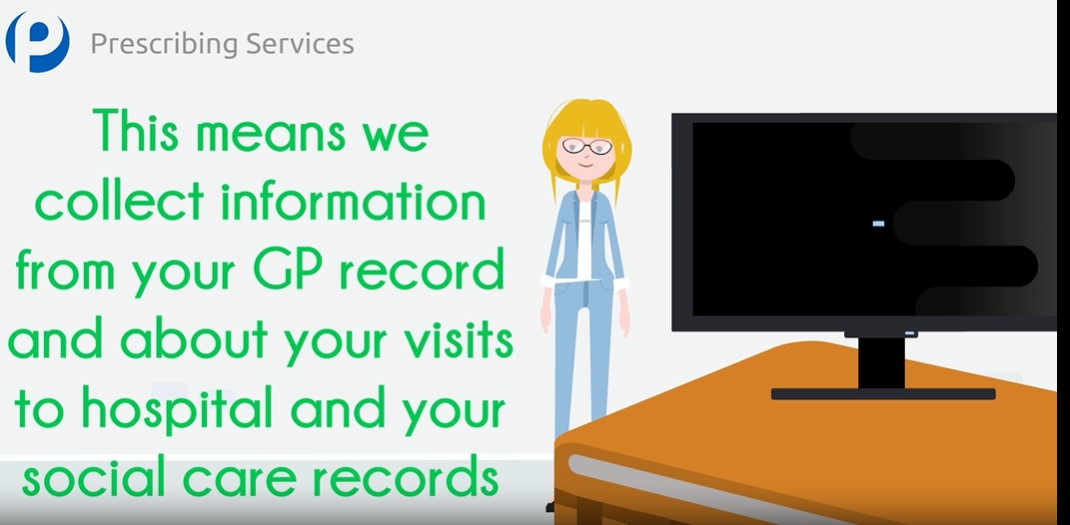Health risk screening, risk stratification and you
Risk Stratification is a process GPs use to help them:
- identify and support patients with long-term conditions.
- to help prevent un-planned hospital admissions.
- to reduce the risk of certain diseases developing such as type 2 diabetes.
- Improve your current treatment, for example, when a new medication becomes available that may give better results.

For GPs to undertake this risk stratification, they use a system called Eclipse. They do this outside of your GP appointment, so it doesn’t affect the time you get with your GP.
Eclipse analyses information held in your medical records and uses this alongside information from other NHS services (such as hospitals), to produce a report that highlights patients who are most at risk or might benefit from changes to their care.
The report is then reviewed by a member of staff within the practice, such as a pharmacist, pharmacy technician or GP, to see what, if any, action needs to be taken.
The member of staff may contact you to discuss your care and may suggest an additional check such as a blood test, a medication review or other suitable intervention, to improve and protect your health.
Benefits
ICBs and GPs, encouraged by NHS England, use risk stratification tools as part of their local strategies for supporting patients with long-term conditions and to help and prevent avoidable admissions. Typically this is because patients have a long term condition such as Chronic Obstructive Pulmonary Disease.
Knowledge of the risk profile of our population will help the ICB to commission appropriate preventative services and to promote quality improvement in collaboration with our GP practices.
This link provides a short video describing how we use Eclipse: https://library.prescribingservices.org/dpia/Vista.mp4
Your questions
Take a look at our Frequently Asked Questions document here Risk stratification Frequently Asked Questions
Legal basis
NHS England has gained approval from the Secretary of State, through the Confidentiality Advisory Group (CAG), for its application for the disclosure of commissioning data sets and GP data for risk stratification purposes to data processors working on behalf of GPs which provides a statutory legal basis under Section 251 of the NHS Act 2006 to process data for risk stratification purposes. The ICB is currently applying for CAG reapproval for risk stratification. We are committed to conducting risk stratification effectively, in ways that are consistent with the laws that protect your confidentiality.
You can watch a short film explaining how we use Eclipse here
Data processing activities for risk stratification
Risk stratification tools use various combinations of historic information about patients, for example, age, gender, diagnoses and patterns of hospital attendance, admission and primary care data collected in GP practice systems.
The ICB will use pseudonymised versions of this information to understand the local population needs, whereas GPs will be able to identify (by NHS number) which of their patients are at risk in order to offer a preventative service to them.
The ICB has contracted Prescribing Services Ltd to provide a risk stratification tool, known as Eclipse, that will provide pseudonymised data to the ICB and identifiable data to GPs.
This processing takes place under contract following the below steps:
- provides data identifiable by your NHS Number about your acute hospital attendances for risk stratification purposes and has signed a Data Sharing Contract for the Secondary Use Services data.
- The ICB works with Prescribing Services Ltd to extract primary care data identifiable by your NHS Number for those patients that have not objected to Risk Stratification or where no Type 1 objection has been made by an individual.
- Within the landing stage, the risk stratification system automatically links and pseudonymises the identifiable data from GPs and no identifiable data of any patient is seen by the ICB.
Prescribing Services Ltd has set up a formula to analyse the data in pseudonymised form to produce a risk score for each patient and send red and amber alerts to the GPs where patients are potentially at high risk.
 The alerts are only made available to authorised clinicians (or administrator acting on behalf of) with a care relationship with the patient via secure access to the Eclipse system.
The alerts are only made available to authorised clinicians (or administrator acting on behalf of) with a care relationship with the patient via secure access to the Eclipse system.
This portal allows only the GPs to view the alerts for the individual patients registered in their practice in identifiable form. The outputs can be made available across grouped practices if Practices are working as a Primary Care Network (PCN), locality, federation or super practice and this access is agreed by the Caldicott Guardian for each Practice.
If you do not wish information about you to be included in our risk stratification programme, please contact your GP Practice. They can add a code to your records that will stop your information from being used for this purpose. It should be noted that opting out may affect the care that we are able to offer you. Alternatively you can register with the NHS National Data Opt-out. It should be noted that opting out may affect the care that we are able to offer you.
You can read more about risk stratification on the NHS England website

